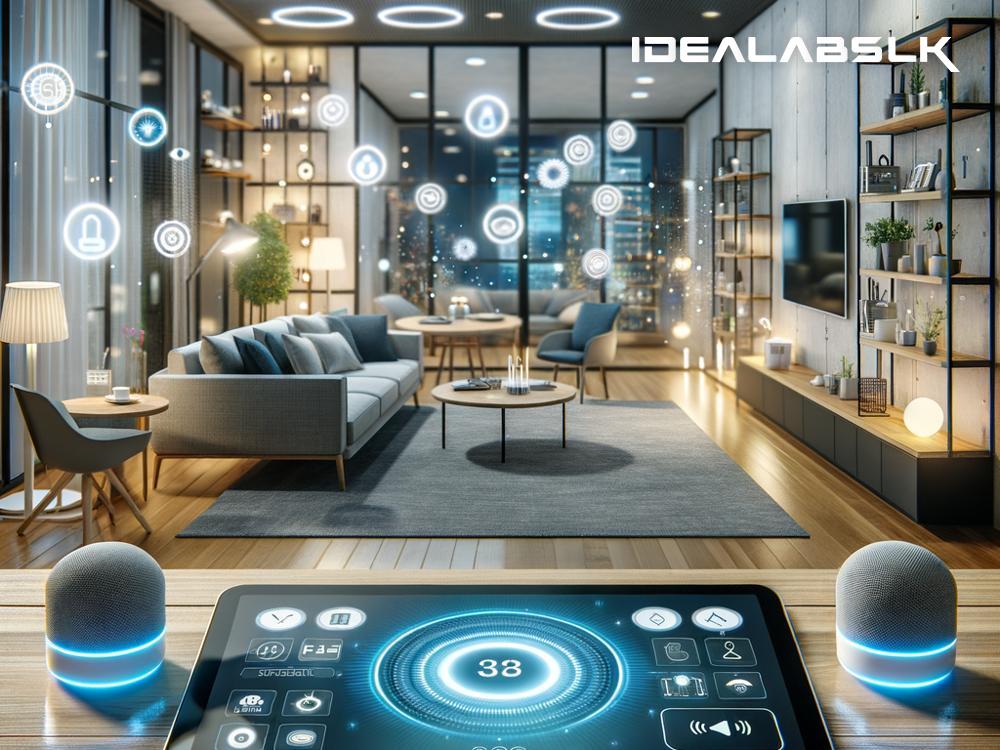Title: How AI Brives the Magic of Seamless Ecosystem Integration in Smart Homes
Imagine walking into your home after a long day at work, and as soon as you open the door, the lights turn on to your preferred brightness and color, your favorite music starts playing softly in the background, and the air conditioning adjusts to your perfect temperature. No, this isn't a scene from a sci-fi movie; it's the reality of living in a smart home powered by Artificial Intelligence (AI).
In today's world, the concept of a smart home is rapidly evolving from a luxury to a necessity, thanks to AI. Let's dive into how AI is playing a pivotal role in powering seamless ecosystem integration in smart homes, making our lives more comfortable, convenient, and secure.
What is Smart Home Ecosystem Integration?
Before we get into the nitty-gritty of AI, let’s understand what we mean by ecosystem integration in the context of smart homes. Essentially, it's the process of connecting various smart devices and appliances in a home to work together as a unified system. This can include everything from lighting, security cameras, and thermostats to speakers, TVs, and even kitchen appliances. The aim is to create a synchronized environment that enhances the way we live.
The AI Magic in Smart Homes
-
Learning Your Preferences: AI isn't just about following programmed commands; it’s about learning and adapting. Through AI algorithms, smart devices learn from your behaviors and routines. For example, if you tend to dim the lights and watch TV at a certain time every evening, your smart home will pick up on this pattern and start doing it for you automatically.
-
Voice Commands & Virtual Assistants: Thanks to AI, you can control your smart home with just your voice. Virtual assistants like Amazon's Alexa, Google Assistant, and Apple's Siri can perform a wide array of tasks on your command. Whether it’s setting alarms, playing music, or checking the weather, AI makes it all seamlessly possible.
-
Enhanced Security: AI takes home security to a whole new level. Smart security cameras and systems can now distinguish between familiar faces and strangers, alert you to unusual activities, and even predict potential security threats by analyzing past data. This proactive approach to security wouldn’t be imaginable without AI.
-
Energy Efficiency and Cost Saving: One of the underrated aspects of AI in smart homes is its ability to save energy and reduce costs. Smart thermostats learn your preferences and adjust the temperature to optimize comfort and efficiency. Lighting systems can adjust based on natural light availability, ensuring that no energy is wasted, all thanks to AI’s analytical capability.
-
Integration and Compatibility: One of the biggest challenges in creating a truly smart home has been getting devices from different manufacturers to work together. AI has been instrumental in solving this puzzle. It offers a level of interoperability and flexibility, ensuring that devices can communicate with each other regardless of their brands. This means you can create a custom smart home setup that fits your exact needs.
The Future of Smart Homes with AI
As AI technology continues to evolve, the potential for smart home ecosystems is virtually limitless. We can expect even more personalized experiences, with AI predicting our needs and making adjustments in real-time. From fridges that can order groceries when you’re running low, to mirrors that offer fashion advice based on your schedule, the integration powered by AI will continue to wow us.
Moreover, with the advancement in IoT (Internet of Things) and edge computing, data processing for AI applications in smart homes will become even faster and more efficient, reducing dependence on cloud computing and making real-time adjustments a norm.
Wrap-up
AI in smart homes is not just about convenience; it's about creating a living space that understands, learns, and adapts to your lifestyle. The seamless integration of various devices and appliances powered by AI not only makes daily tasks easier but also opens up new avenues for energy saving, security, and personalization. With AI, the future of smart homes is bright, efficient, and incredibly smart, transforming our living spaces into something out of a futuristic dream. As we continue to embrace AI, the question isn't whether our homes will become smarter, but how smart can they really get? In this exciting journey, AI is the engine driving us towards a future where our homes are not just where our hearts are, but also where our minds find peace, ease, and endless possibilities.

